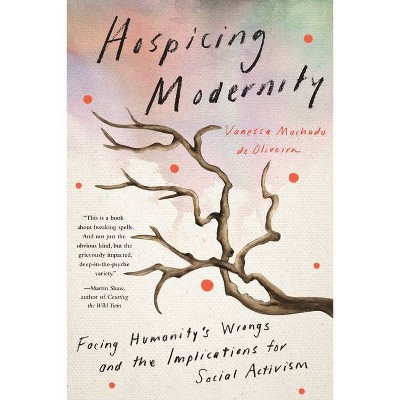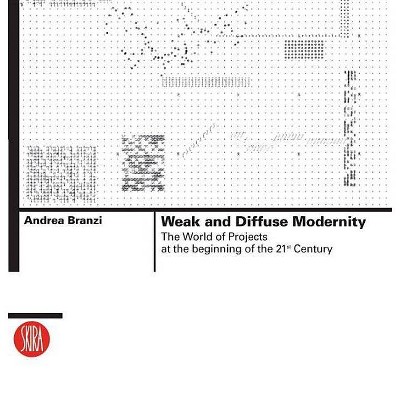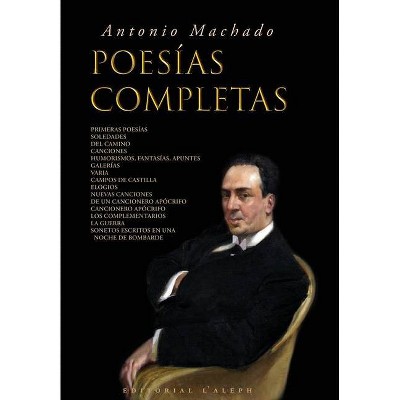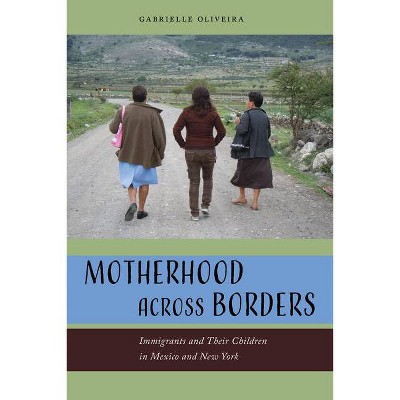Hospicing Modernity - by Vanessa Machado de Oliveira (Paperback)

Similar Products
Products of same category from the store
AllProduct info
<p/><br></br><p><b> About the Book </b></p></br></br>"A discussion on how we must face the multiple crises of modernity, interrupt and retire damaging modern behavior patterns, and reimagine how we learn, unlearn, and respond to crisis"--<p/><br></br><p><b> Book Synopsis </b></p></br></br><b>For fans of <b><i>Everything Is F*cked</i></b> and <b><i>Against Purity: Living Ethically in Compromised Times</i></b>, a book about facing the multiple crises of modernity--and <i>hospicing</i> modernity--with maturity, humility, and integrity.</b> <p/>This book is not easy: it contains no quick-fix plan for a better, brighter tomorrow, and gives no ready-made answers. Instead, Vanessa Machado de Oliveira presents us with a challenge: to grow up, step up, and show up for ourselves, our communities, and the living Earth, and to interrupt the modern behavior patterns that are killing the planet we're part of. <p/>Driven by expansion, colonialism, and resource extraction and propelled by neoliberalism and rabid consumption, our world is profoundly out of balance. We take more than we give; we inoculate ourselves in positive self-regard while continuing to make harmful choices; we wreak irreparable havoc on the ecosystems, habitats, and beings with whom we share our planet. But instead of drowning in hopelessness, how can we learn to face our reality with humility and accountability? <p/>Machado de Oliveira breaks down archetypes of cognitive dissonance--the do-gooder who does good enough, then retreats to business as usual; the incognito capitalist who, at first glance, may seem like a radical change-maker--and asks us to dig deeper and exist differently. She explains how our habits, behaviors, and belief systems hold us back...and why it's time now to gradually disinvest. Including exercises used with teachers, NGO practitioners, and global changemakers, she offers us thought experiments that ask us to: <p/>- Reimagine how we learn, unlearn, and respond to crisis<br>- Better assess our surroundings and interact with difference, uncertainty, complexity, and failure<br>- Expand our capacity to hold personal and collective space for difficult and painful things<br>- Understand the 5 modern-colonial e's: Entitlements, Exceptionalism, Exaltation, Emancipation, and Enmeshment in low-intensity struggle activism<br>- Interrupt our satisfaction with modern-colonial desires that cause harm<br>- Create space for change driven neither by desperate hope nor a fear of desolate hopelessness <p/>For fans of adrienne maree brown, Sherri Mitchell, and Arundhati Roy, <b><i>Hospicing Modernity</i></b> challenges our assumptions and dares to ask more of us, for the sake of us all.<p/><br></br><p><b> Review Quotes </b></p></br></br><br>"Beyond a mere critique of modernity, this is a book written for us as people who struggle with the everyday manifestations of modern power. Clear, creative, and cogent, the work offers cutting-edge philosophy at the same time that it furnishes usable guidance for how to cope with the coming perils of colonialism and capitalism. It's a book for the future, yet written to meet us where we are at right now as individuals living with trauma and facing ethical dilemmas about what it means to take meaningful actions under conditions of complexity."<br>--Kyle Whyte, PhD, George Willis Pack Professor of Environment and Sustainability at the University of Michigan <p/>"Asking the question 'What if racism, colonialism, and all other forms of toxic and contagious divisions are preventable social diseases?', <i>Hospicing Modernity</i> invites its reader to dare and educate themselves by undergoing a process of self-unmaking. Drawing on and moving beyond traditions of radical pedagogy, such as those inspired by Paulo Freire, Vanessa Machado de Oliveira has created a powerful tool for uncovering, undoing, and recovering from the deadly ways in which modernity also lives and dies as humans experience it subjectively."<br>--Denise Ferreira da Silva, PhD, professor at the University of British Columbia Social Justice Institute and author of <i>Toward a Global Idea of Race</i> and <i>Unpayable Debt</i> <p/>"This book is rude. Like the shaman's confident cackle. Like the punch of an elder whose eyes shimmer with a secret. Like a trickster's feverish dance to a drumbeat in a time supposedly passed. And right there--my fellow modern citizen--right there, in the author's cosmological rudeness, lies her deepest medicine. Her generous gift to the need to upset the terraforming coloniality of white modernity. Navigating her rigorous work is an exercise in defamiliarizing modernity as the air we breathe, the site of our persistent illnesses, and the earthly thing that can give way to something else. It is time to gather. We can start here, together."<br>--Bayo Akomolafe, PhD, author of <i>These Wilds Beyond Our Fences<br></i><br>"This is not an ordinary book and it may not be for everyone: it is a thought experiment that skillfully and creatively creates conditions for us to shed our arrogance and to get our proverbial shit together. The author puts it beautifully but bluntly: she lovingly does not care about 'what' you think: your delusions of ends and means and your sense of self-importance are part of the problem. The book is about the necessary expansion of our capacity for dealing with difficult and painful things, to sit in complexity and uncertainty, to show up to difficult conversations and to exist differently and, put frankly, to grow up. It does not matter if you agree or not with the premise that modernity is dying and in need of 'hospicing.' If you take it hypothetically, and engage with the exercises, you will be a more decent human being as a result of reading this book. If what the author is saying resonates, if you are ready to do this difficult work, get over yourself and read it, for the sake of the people around you, and of the planet."<br>--Dan McCarthy, PhD, director of the University of Waterloo Institute for Social Innovation and Resilience (WISIR) <p/>"This is not a book to be picked up lightly. Vanessa Machado de Oliveira is carrying stories that will do things with you. Her book will change you, if you let it. There's strong medicine here, badly needed. There are clues to how we find the paths that lead to the unknown world ahead, beyond the end of the world as we know it."<br>--Dougald Hine, cofounder of the Dark Mountain Project and A School Called HOME <p/>"This is a book about breaking spells. And not just the obvious kind, but the grievously impacted, deep-in-the-psyche variety. Important and powerful, <i>Hospicing Modernity</i> diligently tracks a complex word--modernity--through the bewildering forest of our times. . . . Vanessa Machado de Oliveira's a real storyteller, and that's a praise word where I come from. <i>Hospicing Modernity</i> is a troubling gift in a big cultural moment, and I'm delighted to have encountered it. It seems alive, crawling around my desk, hooting at the moon."<br>--Martin Shaw, PhD, author of <i>Courting the Wild Twin</i> <p/>"This is an outstanding book--truly original and profoundly perceptive in its contents and arguments, and multimodal in its pedagogic approach. It examines a range of urgent philosophical issues about modernity and its deep contradictions, and the ways in which its inevitable demise might be steered toward more morally and culturally productive futures. It is a book that is not only thought provoking but also helpful in guiding genuinely worthwhile discussions."<br>--Fazal Rizvi, PhD, emeritus professor at the University of Melbourne and at the University of Illinois at Urbana-Champaign <p/>"In a suite of stories, informed in part by Indigenous thinking, Machado de Oliveira ruptures certainty with the void that many Indigenous peoples have recognized for millennia, pushing the reader over the edge into mocking darkness. The reader (and the world at large) must now make a choice: does our agency lie in tentatively plaiting the gloom we're in, to make sense of our predicament and to try and grapple with it, or do we default to the brilliant intellect and its offer of comfortable certainty? Machado de Oliveira has established that we need to do the former and, with the telling of fragility, she promotes a new strength through mystery. Beware, though: this is not a book for the fainthearted. Be prepared to be confronted by the world--don't expect to have it nicely served up. The work she calls for is difficult, but ultimately it is the world that is at stake."<br>--Carl Mika, PhD, director of the Centre for Global Studies at the University of Waikato and author of <i>Indigenous Education and the Metaphysics of Presence<br></i><br>"For Indigenous communities, the teachings that are necessary for engagement with sacred plants are very rigorous and require a lot of discipline. Informed by these teachings, this book is a call for responsibility and for collective healing, as we face the demise of the house of modernity, a house built upon delusions of separation and superiority. I invite you to read this book as a ritual that can prepare us to do the work that is necessary to interrupt the harm humanity is inflicting on itself and on the planet."<br>--Ninawa Huni Kui, president of the Federation of the Huni Kui Indigenous People of Acre <p/>"<i>Hospicing Modernity</i> invites us to participate in a form of fieldwork that connects the very sense of who 'we' are with global legacies of harm that modernity and coloniality have wrought. It is a book of acute vision and insight, and taps into that most underused faculty we so desperately need to attend to 'the end of the world as we know it' the imagination. Through a series of thought experiments, Vanessa Machado de Oliveira compels us to truly face the enormity of planetary crises as well as the seemingly benign ways we are complicit in them. Written in a tone that directly addresses the reader through stories, metaphors, and rich imagery, this book resonates with the vitality of life itself, taking us on a transformative educational journey that inspires us to take seriously our profound interconnection to all others--past, present, and future--with whom we share this world."<br>--Sharon Todd, professor of education at Maynooth University, Ireland<br><p/><br></br><p><b> About the Author </b></p></br></br>Vanessa Machado de Oliveira Andreotti (she/her) is a Latinx professor at the University of British Columbia. She holds a Canada Research Chair in Race, Inequalities, and Global Change. She began her career as a teacher in Brazil in 1994 and has since led educational and research programs in countries including the UK, Finland, Aotearoa/New Zealand, Brazil, and Canada. <br/><br/>Andreotti works across sectors in international and comparative education, particularly focusing on global justice and citizenship, Indigenous and community engagement, sustainability, and social and ecological responsibility. Her research examines relationships between historical, systemic, and on-going forms of violence, and the inherent unsustainability of modernity. Andreotti is one of the founding members of Gesturing Decolonial Futures Collective (decolonialfutures.net) and Teia das 5 Curas, an international network of Indigenous communities mostly in Canada and Latin America. She currently collaborates with with these groups to direct research projects and learning initiatives related to global healing and wellbeing in times of unprecedented challenges.
Price History
Price Archive shows prices from various stores, lets you see history and find the cheapest. There is no actual sale on the website. For all support, inquiry and suggestion messages communication@pricearchive.us




















